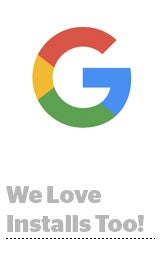 Here’s today’s AdExchanger.com news round-up… Want it by email? Sign-up here.
Here’s today’s AdExchanger.com news round-up… Want it by email? Sign-up here.
In Thrall To Installs
Google – ahem – Alphabet is drinking the app install Kool-Aid. “We are now seeing a trend of advertisers moving their app install budgets to Google,” CEO Sundar Pichai told investors during the company’s Q4 earnings call. Then, in a Tuesday blog post, DoubleClick detailed ways advertisers can create, segment and track their install campaigns using Bid Manager and other tools. Also, video install ads are coming next month. More.
Don’t Call It A Comeback
“Is Nielsen not paying attention to technology? Don’t they notice that something has changed?” asked one Nielsen home respondent when he realized the panel didn’t include Netflix or digital-first media. Emily Steel of The New York Times explores whether there’s room for competition with the media measurement giant. The obvious example is comScore and Rentrak, which formally merged on Monday. A question that plagues many digital disruptors though: Can an innovator overcome the inertia – or momentum (choose your word) – behind a company like Nielsen? “The road is littered with the roadkill of companies that have tried to compete with Nielsen over the years,” said Alan Wurtzel, the president of research at NBCUniversal. More.
Falling On Deaf Ears
Facebook has paved the way for autoplay videos on a broad swath of media (Twitter, Pinterest, ESPN and CNN, to name a few). And advertisers are, understandably, hesitant to dive head-first into a format that so thoroughly annoys users. Should they be? Digiday reporter Sahil Patel finds many publishers get better results (user engagement, clicks, attention time, etc.) with autoplay. The back and forth between pubs and marketers over autoplay will probably go on forever. Meanwhile everyone will download an ad blocker. Read on.
Sic ’Em
Politicians know attack ads against opponents are often more effective than positive messages. But are brands finding the same opportunity when it comes to their content marketing? The Guardian ran a story this week titled “Nestlé admits slavery in Thailand while fighting child labour lawsuit in Ivory Coast.” Well, that sounds like serious news, I’m glad the Guardian is on it … but what about the “Supported by Mondelez” icon next to this reporting job? Mondelez, one of Nestlé’s biggest competitors, also ran ads throughout the piece. Mondelez tells Ad Age’s EJ Schultz that they don’t have any say over editorial stories, they just sponsor the series. More.
But Wait, There’s More!
- WPP Was 2015’s Most Acquisitive Company – WSJ
- IBM To Acquire German Digital Agency Aperto – release
- Facebook Testing Mobile Browser Perma-Logins – Business Insider
- Kik Introduces Branded GIFs On Platform – release
- Twitter’s Branded Emojis For Top Clients – Adweek
- Lotame And Skimlinks Partner For Retail Intent – release
- Despite Risks, Pubs Take Commerce In-House – Digiday
- MRC Accredits AdYapper For Video – release
You’re Hired!










